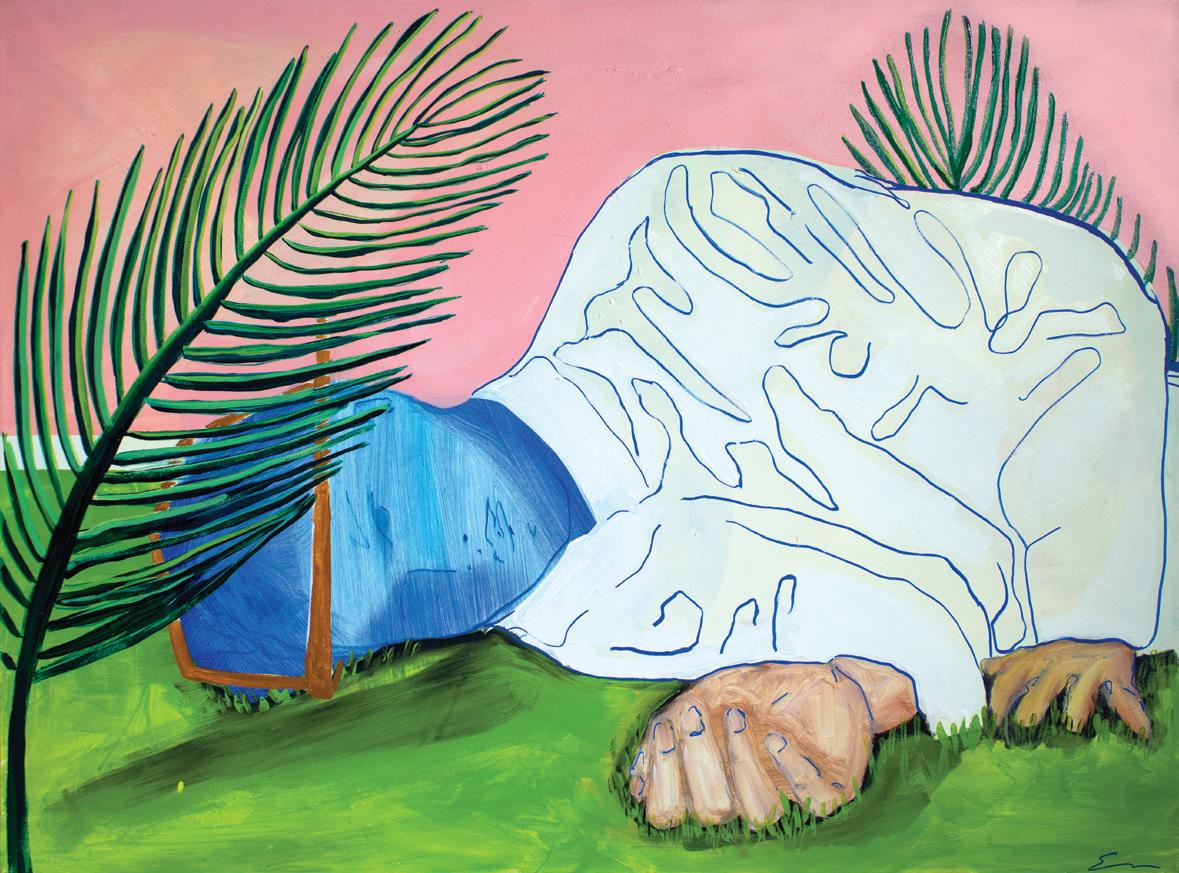
3 minute read
A Bruce Cockburn Starter Playlist
FOR THE RECORD A Bruce Cockburn Starter Playlist
By Ben Self
Advertisement
One Day I Walk (1970) Written from the point of view of a wandering busker, this simple tune from Cockburn’s early solo career evokes a young man’s hopeful embrace of life’s twists and turns. The stripped-down style also conveys his own early search for musical and philosophical purity.
All the Diamonds (1973) Cockburn said he wrote this song “the day after I actually took a look at myself and realized that I was a Christian.” As you might expect, it basks in the afterglow of conversion: it’s luminous and full of gratitude.
Festival of Friends (1975) This little tune was borne of tragedy—the death of a friend’s baby to SIDS—but again illustrates the purity of Cockburn’s newfound faith, with a simple yet beautiful metaphor for the Kingdom of God.
Lord of the Starfields (1976) Cockburn attempted to write “something like a psalm” here, capturing both the awesome sweep of God’s glory in creation and our own compressed longing for connection, purpose, and transcendence. It’s one of the most memorable and unique songs of his career.
Wondering Where the Lions Are (1979) The lyrics to this upbeat pop song— Cockburn’s first international hit—were inspired by a dream he had (involving lions) after an ominous conversation with a relative about the looming threat of nuclear war. He wrote it after waking up the next morning to find that, thanks be to God, there was no “nuclear war. It was a real nice day.”
Tokyo (1979) This is one of Cockburn’s first “documentary-style” songs, comprised of a bevy of precise observations strung together to form a broader impression. It centers around a strange experience he had passing by a road accident while on tour in Tokyo.
Rumours of Glory (1979) On an album full of grim themes, this buoyant reggae-styled single conveyed
what Cockburn described as “the other side of the coin”—that however bleak things may seem, “something is shining” beneath the surface.
The Coldest Night of the Year (1981) Cockburn’s conscious effort in the early 1980s to “immerse [himself] in human society” is evident in this catchy urbancentered tune. One imagines that if it was really the “coldest night of the year” by Toronto standards, it must have been pretty darn cold.
Dweller By a Dark Stream (1981) Lyrically, this song hearkens back to a more explicitly religious phase in Cockburn’s songwriting. But it’s also a little darker, being preoccupied with our sinfulness and desperate need for salvation.
If I Had a Rocket Launcher (1983) This is probably Cockburn’s single most famous song, and also, understandably, his most controversial. As Rolling Stone explained: “[After] observing the horrors of refugee camps along the GuatemalanMexican border, he went back to his hotel room and cried and wrote in his notebook, ‘I understand now why people want to kill.’” This is a visceral cry for justice.
Lovers in a Dangerous Time (1983) Somehow “Lovers” never cracked the Billboard Hot 100, yet as far as I’m concerned, it’s one of the catchiest songs of the 1980s. It pits the joys of young love against what Cockburn saw as a backdrop of despair and foreboding at this juncture of the Cold War. Don’t Feel Your Touch (1987) This achingly beautiful tune was undoubtedly written at a dark moment for Cockburn. It radiates desolation, a longing for something that feels lost. What, exactly? It’s hard to say.
Burden of the Angel / Beast (1992) Here Cockburn meditates memorably on the persistent frustrations of human nature, of being “simultaneously justified and sinner.” As he put it elsewhere, “I think we are redeemed spiritually but in terms of our earthly existence, [that beastly potential] is always there.”
Pacing the Cage (1995) If I had to pick a favorite song from Cockburn’s catalog, this would probably be it. It employs the perfect metaphor—an animal “pacing the cage”—for modern restlessness and anxiety, one especially poignant in the age of Covid-19.
40 Years in the Wilderness (2016) In this stirring latter-day tune, Cockburn reflects on his 40-year search for God—or God’s 40-year search for him—from his conversion in 1973 through to his decision in the mid-2010s to start regularly attending a church again after a decades-long hiatus. After all these years, it seems he’s still hearing the call to “Take up your load” and run the race set before you.










